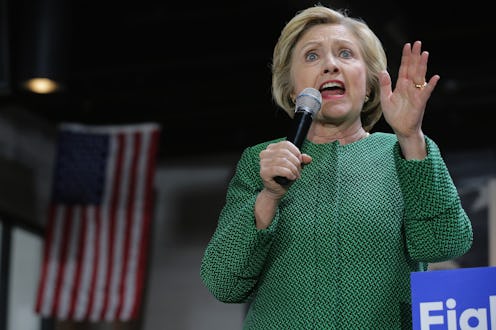On Sunday, President Barack Obama got painfully honest with Fox News' Chris Wallace when he called the United States' lack of planning in Libya his "worst mistake." Since Hillary Clinton aided Obama as secretary of state during Libya's revolution, the president has inevitably placed her judgment underneath the nation's microscope as well. When Wallace sensitively inquired as to what Obama considered his "worst mistake," he said: "Probably failing to plan for the day after what I think was the right thing to do in intervening in Libya."
In the Spring of 2011, the United States conducted airstrikes in an attempt to weaken the forces of Libya's longtime dictator, Muammar Gaddafi. Facing pressure from the United Nations to step down from office, Gaddafi chose to attack his own people, sparking a humanitarian crisis that caught the world's attention. Instead of fostering democracy, however, the United States ultimately contributed to the continuance of chaos within the nation by helping to oust him. Neither Obama nor Clinton expected the repercussions to be so detrimental.
Without a centralized government, Libya looks fated to become a failed state. With leadership virtually nonexistent, militant extremist groups like ISIS have found room to infiltrate. Army Gen. David Rodriguez, a top United States commander in North Africa, called the nation a "fractured society" and offered little hope for its continued existence as a state.
Though it's impossible to gauge whether the outcome would have been better if the United States had resisted involvement, Obama's most recent comment may hurt Clinton's campaign in the upcoming days. As opponent Bernie Sanders begins to gain momentum in the West, she can't afford to be assaulted by the public eye yet again. The former secretary of state has gained notoriety as a legitimate presidential candidate because of her experience in foreign policy, but that experience has also required her to fiercely defend her judgement more than just once.
After a March 14, 2011 meeting with former French president Nicolas Sarkozy, Clinton spoke with Obama’s National Security Council and pioneered a new push for greater military involvement in the Middle East. In the days when ISIS was just a distant threat, Clinton's decision to involve the military in Libya faced skepticism among Democrats who, unlike her, voted against the war in Iraq in 2002. While running against Obama in 2008, Clinton ultimately admitted that her vote was a "mistake," but found herself in a potentially similar situation just three years later. The argument goes that it's not that the 2011 airstrikes were unsuccessful; they just weren't followed up by legitimate plans for reconstruction.
Obama's willingness to speak about Libya opens up additional wounds for Clinton, who has been accused of ignoring supposed warning signs of the 2012 attack on the United States embassy in Benghazi, which killed four Americans. When Clinton was investigated for the attacks, her private email server became a topic of heavy discussion which even Bernie Sanders deemed tiresome. After Clinton claimed responsibility for the lapse in security, Democrats grew weary of hearing about the alleged scandal. In fact, it's not completely clear whether the case hurt her credibility or helped her regain Americans' trust going into the 2016 primaries. That being said, Libya has the potential to either spark old controversies for Clinton's campaign -- or simply fizzle into oblivion since, after all, it's old news.
